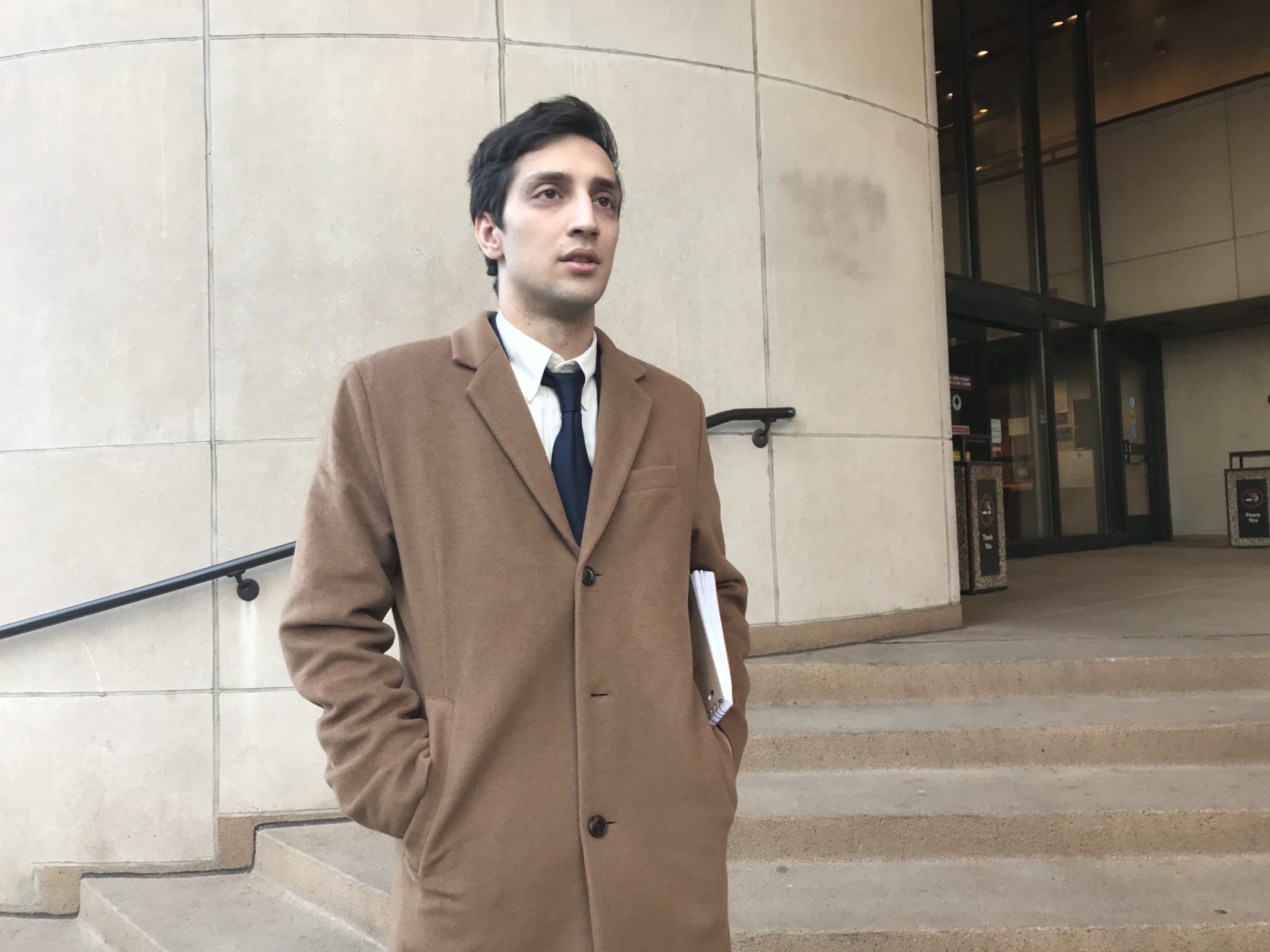
Saifullah Khan, the former Yale student who was found not guilty of sexual assault by a criminal court in March, said on Monday that the University Wide Committee on Sexual Assault has resumed its hearing process on his case to determine whether he can re-enroll at Yale.
Days before Khan was arrested by police in November 2015 for allegedly sexually assaulting another student on Halloween night, Yale suspended Khan on an interim emergency basis. As Khan moved forward with his trial, Yale initiated a UWC proceeding to evaluate whether disciplinary action against Khan was warranted. But a formal hearing remained on hold as Khan awaited a verdict for two and a half years in criminal court.
“Under oath, I told the truth and the jury saw my innocence,” Khan wrote to the News on Tuesday. “I am currently going through a UWC procedure and I would like to put all of this behind me.”
The Pattis and Smith Law Firm handled Khan’s case throughout his criminal trial, but stopped representing him after he received a not guilty verdict in criminal court. Khan told the News on Monday that “some of the best minds in America” are now helping him navigate Yale’s Title IX proceedings.
“We wish him the best,” said Dan Erwin, one of Khan’s former defense lawyers. “We think Yale wrongfully suspended him, and we’re cheering him on.”
Yale spokeswoman Eileen O’Connor declined to comment for this article. Chair of the UWC David Post declined to comment on Khan’s case, citing the committee’s confidentiality rules.
A classmate of Khan’s, referred to in court documents as Jane Doe, accused him of raping her after they walked back to her room in Trumbull College from the Yale Symphony Orchestra’s 2015 Halloween concert. Khan was suspended by Yale on Nov. 9, 2015, three days before he was arrested.
Khan’s trial got underway in late February. After hearing testimony from a dozen of witnesses, a six-person jury cleared Khan of all four sexual assault charges after a four-hour-long deliberation.
After the verdict, Khan’s defense team publicly stated that it would like to see him resume classes by the summer or the fall and obtain his degree within “a reasonable time.” If he re-enrolled, Khan would need to complete two semesters to graduate.
In clearing Khan of all four sexual assault charges, jury members concluded that Doe and her team failed to prove that the evidence showed “beyond a reasonable doubt” — the highest standard of proof used in jurisprudence — that Khan had committed a crime.
At a potential hearing within the University, however, Khan would face a different evidentiary standard.
Like most U.S. colleges, Yale adjudicates sexual misconduct allegations using a lower standard of proof than that used in criminal courts. Per the “preponderance of the evidence” standard, a student is disciplined if evidence shows that the misconduct more likely than not occurred. Most civil court proceedings also use the “preponderance of the evidence” standard.
After Khan was acquitted, Yale students debated whether he should be readmitted, in Facebook posts and op-eds. Amelia Nierenberg ’18, a former Opinions editor for the News, wrote in March that “readmitting Khan would be a grievous mistake.” She argued that a preponderance of evidence does exist that Khan did not engage in Yale’s definition of consent, a “positive, unambiguous and voluntary agreement to engage in specific sexual activity throughout a sexual encounter.”
“Legal acquittal does not mean ‘innocence,’” Nierenberg wrote. “It does not mean that Khan did not engage in deeply dubious sexual conduct. It just means that a jury could not find that this sexual behavior was, to their eyes, rape beyond a reasonable doubt.”
But other voices, especially those outside the Yale community, have been vocal in coming to Khan’s defense.
Cynthia Garrett, Co-President of Families Advocating for Campus Equality or FACE — a group that advocates for the fair treatment of students facing sexual misconduct allegations on college campuses — sat through the trial and wrote a column in March for the College Fix describing her experience. She told the News that that “the Yale community seems to be in denial” when it comes to giving Khan a fair chance at returning to the University.
“It isn’t even a measure of the differences in standards of evidence,” Garrett added. “[The jury] didn’t believe her, they said they didn’t believe her, she was not credible, this is not he said-she said, this is ‘we don’t believe her, and the evidence supports what he said.’ … Why is it that an ideology has to supersede actual facts?”
Yale received an all-time high of 124 complaints of sexual misconduct during the reporting period that spanned from July 1 to Dec. 31, 2017.
Jingyi Cui | jingyi.cui@yale.edu
Britton O’Daly | britton.odaly@yale.edu
Correction, May 2: Due to an editing error, a previous version of this article incorrectly stated that Khan said on Tuesday that his UWC process has resumed. In fact, he said it on Monday.
Correction, May 2: A previous version of this article incorrectly stated that Khan was suspended by Yale three days after he was arrested. He was, in fact, suspended three days before he was arrested.







